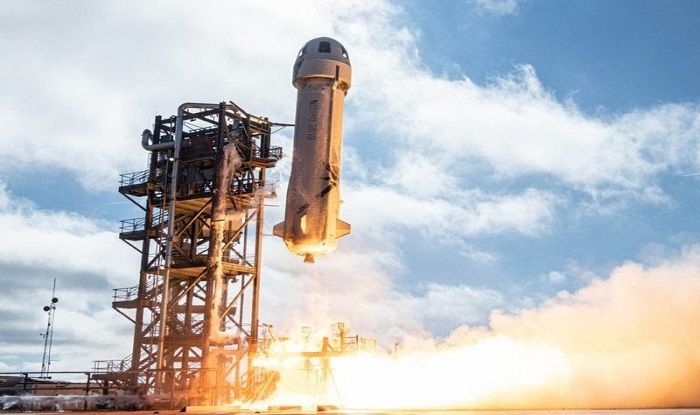Aerospace can be defined as the branch of a technologically-driven industry concerned with both aviation and space flight. Proven to be a very diverse area of research, aerospace activity can be concerned with a profusion of military, industrial and commercial application.
The reason why the global aerospace market is worth billions is due to the fact that this trade is currently at its peak. The economy is thriving, with a substantial amount of new start-ups enlarging and transforming this field.
Let’s shift our focus to a booming business, SpaceX. Founded in 2002, it is an American space transportation services, aerospace manufacturer, and communications company. Its renowned founder, Elon Musk, had one goal in mind. This revolved around the notion of reducing space transportation costs, hence enabling the colonization of Mars. Now, SpaceX is valued at $74 billion in 2021.
Another recent example of the same includes the California-based company, Virgin Galactic. Its CEO, Richard Branson, aims at developing commercial spacecraft that can provide suborbital spaceflights to space tourists. With a market value of approximately $10 billion, it made a giant leap on July 11 when it launched its first fully crewed flight.
Once again, the list doesn’t end here. Moving on to the next big phase, I would love to shed some light upon a fairly new satellite internet project. Starlink, another venture adopted by Musk, is a satellite internet constellation operated by SpaceX. It provides satellite Internet access to most of the Earth, particularly in rural areas that don’t have access to high-speed broadband. Using lasers to communicate instead of connecting people to a nearby ground station, all you need to do to make the connection is set up a small satellite dish to receive the signal and pass the bandwidth on to your router. Yes, it’s that simplistic. This task alone earns Musk billions in annual revenue, proving that innovation in any form can be of advantage if individuals are ready to take on a new task.
To conclude it all, not only is the aerospace industry at all all-time high but it is expected to considerably impact our lives in the near future. Expected to grow at a rate of 7.7% by 2025, it will be worth around $430.9 billion. Moreover, aerospace manufacturers are likely to prioritise restructuring and make the entire process cost-efficient. This will position them for profitable growth in the long run. The recent Covid-19 pandemic also takes advantage of this field by transforming supply chains into more digital-based practices. Ranging from attempting to colonise Mars, space exploration, and internet satellite deployment – the possibilities are endless. With the continued growth of the global aerospace sector and the newfound interest in several space systems, aerospace engineering is going to revolutionise the world we live in.
(Author Khushi Kothari is a student of the American School of Bombay. She is doing her internship with India.Com, part of Zee Digital)
